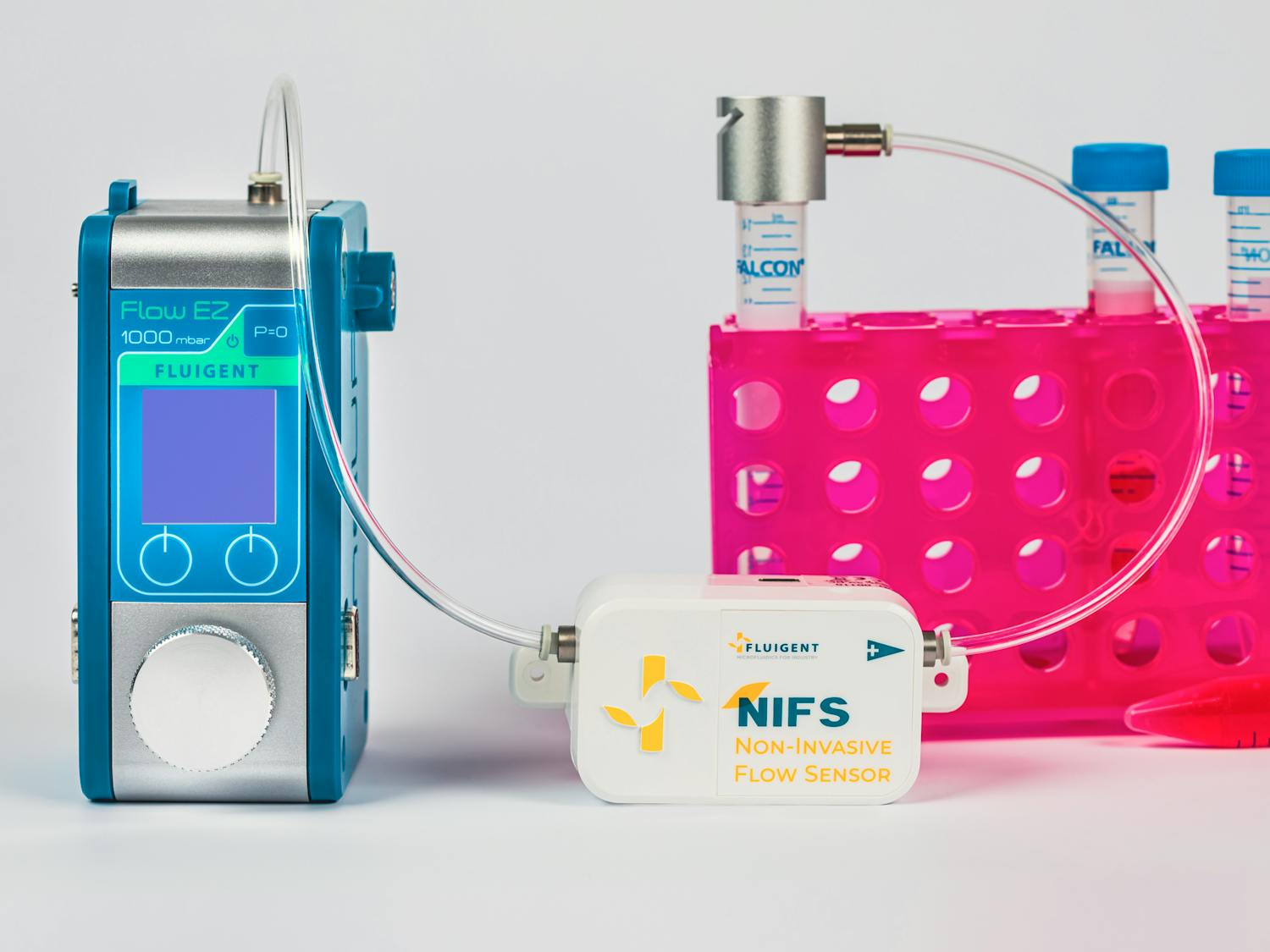World-first non-invasive flow sensor brings microfluidics to the next level

The rise of smart microfluidics
Today, microfluidics is a key enabling technology in a wide range of industries, from diagnostics to drug discovery. Now, thanks to Fluigent’s non-invasive flow sensor (NIFS), the microfluidics industry will become even more competitive.
French company Fluigent is a technology leader in smart microfluidics and microfluidic flow control solutions. The company knows all about manipulating fluids at the smallest scale (from nanoliters to picoliters) and the challenges involved, such as the sensor’s contact with the fluid. This leads to lengthy calibration and cleaning procedures meant to eliminate any contamination risk. CSEM and Fluigent, therefore, teamed up to explore how to eliminate these issues, which led Fluigent to develop the smart microfluidic product of the future.
The non-invasive revolution
As the name implies, flow sensors measure the flow of fluids through microfluidic devices. Since microfluidics involves handling very small volumes, these sensors are critical for controlling flow and ensuring reliable and robust processes. CSEM is an expert in non‑invasive flow sensors and has patented several of these technologies. These sensors are unique in that they measure the airflow that pushes fluids through microfluidic channels. This makes them non‑invasive. No part of the sensor comes into contact with any fluid.
Working with air flow sensors has many advantages, but also presents new challenges due to air compressibility and the indirect flow measurement. In developing the non‑invasive solution, “we also worked to improve the accuracy of flow measurements to within a few percent, while reducing the sensor response time. We also ensured the sensor was temperature-compensated and leak-proof,” Revol adds.
The role of tech transfer in product development
With the transfer of CSEM’s patented non‑invasive flow sensor, Fluigent is now the first company in the world to offer this breakthrough technology to the market.
Improving diagnostics and personalized medicine
The introduction of Fluigent’s NIFS device will help make microfluidic devices more reliable, less cumbersome, and less susceptible to contamination. Because microfluidics is a key enabling technology for bioconvergence, it opens up new possibilities in diagnostics and biotechnology to foster more personalized healthcare.